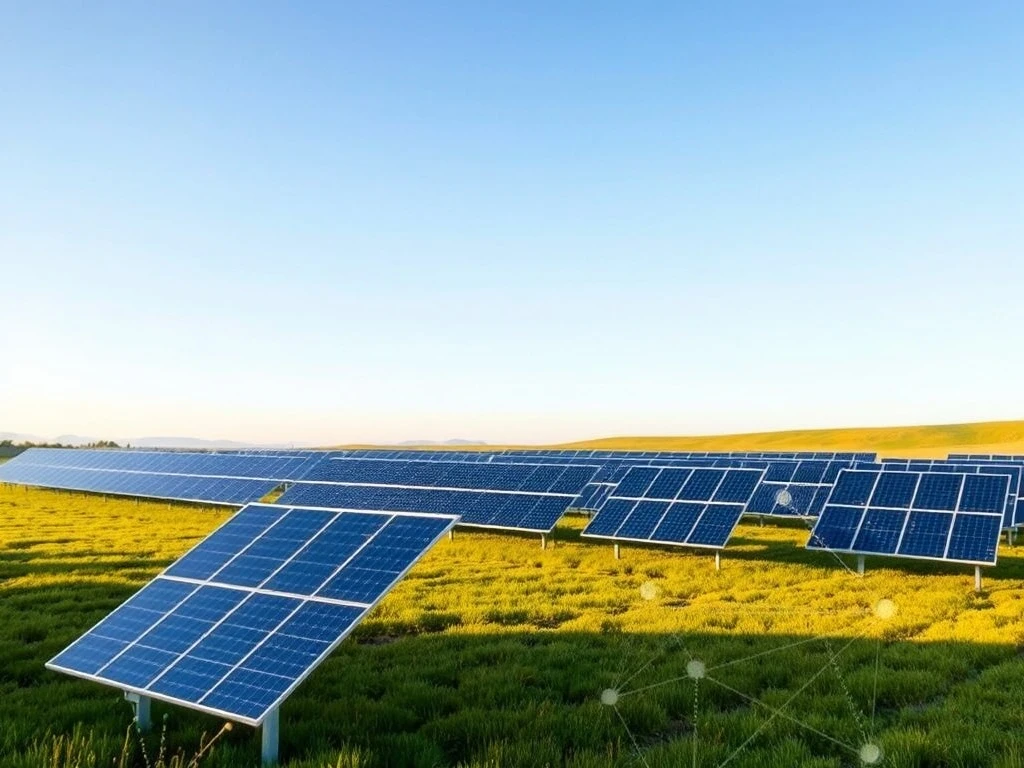Revolutionary RWA Tokenization Unlocks Illinois Solar Financing with Onchain Lending

Get ready to connect decentralized finance (DeFi) with tangible assets! A significant development is underway as Projective Finance opens a $7 million onchain lending pool, providing a direct bridge for DeFi investors to access real-world infrastructure projects.
What is Projective Finance Doing with Onchain Lending?
Projective Finance, a platform focused on financing real-world assets (RWAs), has launched a $7 million lending pool specifically for Illinois public schools. This initiative allows investors in the decentralized finance space to gain exposure to municipal infrastructure projects within the United States. The primary goal of this pool is to fund solar energy installations across various school districts in Illinois. A key aspect is that these infrastructure loans are executed entirely onchain, leveraging blockchain technology for transparency and efficiency.
Josh Chinnaswamy, co-founder of Projective Finance, highlighted the transformative nature of this approach, stating that what traditionally required multiple intermediaries, complex fund structures, and minimum investments in the tens of millions can now be accessed directly with full transparency. This represents a significant step in making real-world asset investment more accessible.
Accessing Real-World Assets Through RWA Tokenization
Projective Finance specializes in allowing investors to participate in projects backed by government institutions. These projects are generally considered lower risk due to high credit ratings and government guarantees. Importantly, the platform does not involve exposure to volatile cryptocurrencies but instead focuses on these stable, government-backed renewable energy initiatives. This model is a prime example of RWA tokenization in action, turning traditional assets or loans into digital tokens that can be managed and traded on a blockchain.
Accredited investors can participate in this specific lending pool using the USDC stablecoin. The State of Illinois acts as the guarantor for the pool, and all participating projects are rated by Moody’s, providing an additional layer of security and transparency for investors.
Why is the Avalanche Blockchain Involved?
Projective Finance’s infrastructure is built on the Avalanche blockchain. Avalanche, a layer-1 network developed by Ava Labs, is chosen for its scalability and interoperability. These features are crucial for handling the volume and complexity required for managing tokenized real-world assets and facilitating efficient onchain transactions for the lending pool.
Addressing the Illinois Solar Financing Bottleneck
The U.S. solar market has seen substantial growth, with over 160 gigawatts installed by 2024. Solar energy’s share of the nation’s electricity supply has nearly doubled since 2020. Solar projects are also gaining traction at the municipal level, particularly within school districts, with a growing number of students attending solar-powered schools.
However, a significant challenge remains: financing. Atticus Francken, another co-founder of Projective Finance, noted that thousands of viable projects are stalled because traditional financing methods struggle to serve this market efficiently. He described this as a “massive financing bottleneck.”
Tokenization offers a potential solution by making solar financing more accessible, efficient, and transparent. By breaking down large investments into smaller, tokenized units, platforms like Projective Finance can tap into a broader pool of capital, including that from DeFi investors interested in sustainable infrastructure.
Beyond Illinois: The Growing Trend of Tokenized Green Energy
The concept of using tokenization for renewable energy investments is not unique to Projective Finance. In 2022, BNP Paribas suggested that tokenization could boost renewable energy and ESG investing by providing more transparent opportunities and expanding the reach for smaller projects. Other examples include companies exploring fractional ownership of solar panels on blockchains like Algorand, allowing residents to benefit from solar energy without physical installation.
This trend underscores the potential of blockchain technology and RWA tokenization to unlock new funding avenues for sustainable initiatives and connect traditional finance with the efficiency of decentralized systems. The Projective Finance pool serves as a concrete example of how this can be implemented for public infrastructure like schools in Illinois.
Conclusion: A Bright Future for Onchain Lending and Solar
Projective Finance’s launch of the $7 million onchain lending pool for Illinois solar projects marks a significant milestone in bridging DeFi with real-world assets. By leveraging the Avalanche blockchain and focusing on government-backed municipal loans, the platform offers DeFi investors a new opportunity to participate in stable, impactful infrastructure development. This initiative demonstrates the power of RWA tokenization to overcome traditional financing hurdles and accelerate the deployment of renewable energy, promising a more transparent and efficient future for sustainable finance.









